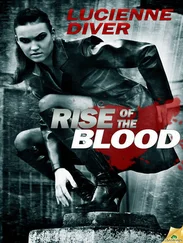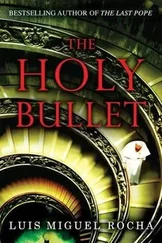Judith Rock - The Eloquence of Blood
Здесь есть возможность читать онлайн «Judith Rock - The Eloquence of Blood» весь текст электронной книги совершенно бесплатно (целиком полную версию без сокращений). В некоторых случаях можно слушать аудио, скачать через торрент в формате fb2 и присутствует краткое содержание. Жанр: Исторический детектив, на английском языке. Описание произведения, (предисловие) а так же отзывы посетителей доступны на портале библиотеки ЛибКат.
- Название:The Eloquence of Blood
- Автор:
- Жанр:
- Год:неизвестен
- ISBN:нет данных
- Рейтинг книги:5 / 5. Голосов: 1
-
Избранное:Добавить в избранное
- Отзывы:
-
Ваша оценка:
- 100
- 1
- 2
- 3
- 4
- 5
The Eloquence of Blood: краткое содержание, описание и аннотация
Предлагаем к чтению аннотацию, описание, краткое содержание или предисловие (зависит от того, что написал сам автор книги «The Eloquence of Blood»). Если вы не нашли необходимую информацию о книге — напишите в комментариях, мы постараемся отыскать её.
The Eloquence of Blood — читать онлайн бесплатно полную книгу (весь текст) целиком
Ниже представлен текст книги, разбитый по страницам. Система сохранения места последней прочитанной страницы, позволяет с удобством читать онлайн бесплатно книгу «The Eloquence of Blood», без необходимости каждый раз заново искать на чём Вы остановились. Поставьте закладку, и сможете в любой момент перейти на страницу, на которой закончили чтение.
Интервал:
Закладка:
Chapter 2
ST. STEPHEN’S DAY, THURSDAY, DECEMBER 26
The Feast of Christmas passed in Masses, a modest but welcome feast, and equally welcome rest. When the five o’clock rising bell clanged through the winter darkness the next morning, it pulled Charles from dreams of home and warmth. He forced himself out of bed, shivering in his long white linen shirt and the black knee-length underpants and stockings he’d taken to wearing night and day in the cold. He felt his way into his shoes, easy to do in the dark since they had no right and left, and twitched his woolen cassock down from its old-fashioned hanging rail. Thrusting his arms into its narrow sleeves, he pulled it on over his underclothes and tied the black cloth belt around his waist in the regulation knot. By feel, he pulled a narrow edge of shirt cuff and neckband to show white at neck and sleeve against the cassock’s black, retrieved his cloak from its night duty as an extra blanket, and draped it around his shoulders. Then he knelt at his prie-dieu for the required hour of meditation.
He said the Hours of Our Lady, added prayers for particular people, and finished, as always, with fervent prayers for the safety and well-being of his Huguenot cousin Pernelle and her little girl Lucie, living now in Geneva. Some of his brother Jesuits might have censored his prayers for Protestants-called Huguenots in France-unless he was praying for their conversion. But St. Ignatius had founded the Society of Jesus “to help souls,” and Charles sheltered his prayers under that wide rubric. When he reached his “amen,” he rose resolutely from the prie-dieu, refusing to stay there with the images of Pernelle that rose in his mind. It being still too dark to see the little painting of the Virgin and Child on the wall in front of him, he took his candle into the passageway. Listening to the faint morning sounds from other chambers, he lit the candle from the night lantern on the stair landing and hurried back to his own door, shielding the spark of warmth with his hand.
His chamber and tiny adjoining study were on the third floor of Louis le Grand’s main building, whose tall double doors were the college’s public entrance. The ground floor, which also housed the most important administrative offices, offered a few traces of elegance with its carpets and paintings, but Charles’s rooms were anything but stylish. The white walls were roughly plastered and the low ceiling was crossed with massive beams. Besides the prie-dieu and his little painting of the Virgin and Child, Charles’s sleeping chamber held a narrow uncurtained bed with a painted crucifix at its foot, a single chair without a cushion, and an old-fashioned, age-blackened wooden chest. Everything in the chest, except for his two extra shirts, was black: an extra pair of underpants, two extra pairs of stockings, a skullcap, and a pair of breeches for wearing under his cassock when activities like riding or directing ballet rehearsals threatened modesty.
The work of scholastics differed, and Charles spent more time as assistant rhetoric teacher than he did studying. Rhetoric was the art of communication, and because Jesuits believed that the body should be as eloquent in the service of God and virtue as the voice, rhetoric teachers produced plays and ballets in which their students acted and danced.
The only other things in Charles’s sleeping chamber were two hooks beside the hanging rail, and two niches in the thick plaster walls. The hooks held his two black hats. The flat-crowned, wide-brimmed one was his outdoor hat, and the brimless bonnet with its three corners, or points, was usually worn only indoors, on ceremonial occasions like the one for the Conde on Christmas Eve. The niche over the clothing chest held several books, and the one at the foot of his bed held his mother’s New Year’s gift, a small Pieta-the Virgin cradling her dead Son-carved in black stone. Eventually, it would be put where others could see it, but for now, he was allowed to keep it in his chamber.
In the study, another painted crucifix hung over a large scarred table that served as Charles’s desk. The chair had a hard red seat cushion, and a small frayed piece of brown rug kept his feet off the cold wood floor. Like most rooms in the college, chamber and study were unheated. The rector and a few others sometimes had a brazier in chamber or office, but only the kitchens, the infirmary, the fathers’ small refectory, and the common warming room-the calefactory-had fireplaces. There were also fireplaces in a few large chambers in the student court, but those were strictly reserved for noble or very wealthy boys. Otherwise, the assumption was that a cold and solitary body made for warm devotions, and that in large gathering places, so many bodies crowded together made heat enough.
Shivering in spite of his cloak, Charles broke the skim of ice on the water that had stood overnight in a tall copper jug. One of his eccentricities was that he liked to be clean. To most people, “clean” meant wearing a clean white linen shirt or chemise. But to Charles, it meant using water-even soap. Though he had to admit that he was washing less in this winter weather. Last summer, when he’d first come here, lay brothers had brought water to his chambers most mornings, sometimes even warm water, but this autumn, the rector had stopped that small luxury. Money was unexpectedly short, and the lay brothers-who cleaned, cooked, marketed, ran the infirmary, and also took care of many of the college’s mundane interactions with the outside world-were spread thinner because no new brothers could be accepted until college finances improved.
Charles wiped his teeth with a linen rag dipped in the little pot of tooth cleaner he kept. He didn’t shave, because his confessor had taken his shaving mirror and ordered him to go to the college barber like everyone else. Charles missed the mirror. Not from vanity-he didn’t mind going stubble-jawed half the time, nor did he want to look at himself. But the little mirror’s greenish glass had made everything look mysteriously under water, and he’d found that being reminded of mystery, even in the mundane act of shaving, had been a good part of the day’s beginning.
He started toward the window to open the wooden shutters, then wondered if leaving them closed might keep his rooms warmer. Telling himself that was exactly as likely as the miracle of loaves and fishes happening in the refectory and replacing the omnipresent bean pottage, he opened them in case the sun shone, put on the skullcap he’d gotten permission to wear for warmth, and went to Mass.
Unlike Benedictines, members of the Society of Jesus were not cloistered and did not pray the canonical hours together. Besides each day’s solitary hour of meditation, they gathered for Mass before scattering to the day’s duties, and twice during the day took time for an examen, the examination of conscience.
After five months in the college, Charles no longer got lost on his way to the chapel, or tripped over the way’s odd steps and sudden turnings, even in the early-morning dark. The original college buildings had been part of a private hotel, or townhouse. But in the century and a quarter since the Society of Jesus acquired the property, the old buildings had been reconfigured again and again to accommodate the growing number of students and teachers, and these upper floors were haphazard mazes of small chambers, studies, an occasional cramped salon, dead-end passages, and low doorways. He hurried through narrow passageways, around corners, up and down inconsequential steps waiting like traps, and finally down a last steep flight of stairs to a small door set into a corner.
The door opened into Louis le Grand’s main chapel, long and high ceilinged. Charles stopped for a moment, as he always did, under the small false dome where the aisles crossed, and looked up at the well-fed angels in their blue sky, reaching down to struggling mortals. He could barely see them as yet in the dim light, but knowing they were there was enough. The side altars, too, were swathed in shadow, and the gallery and its colored glass windows were black. He went to his usual place on one of the backless wooden benches, knelt on the stone floor, and bowed his head onto his clasped hands. All around him, heels tapped over stone, and cassocks, cloaks, and coats rustled as Jesuits, students, and a scattering of people from the neighborhood, especially men who belonged to the college confraternities, arrived and settled. Then the Mass began and Charles gave himself up to the mystery of God.
Читать дальшеИнтервал:
Закладка:
Похожие книги на «The Eloquence of Blood»
Представляем Вашему вниманию похожие книги на «The Eloquence of Blood» списком для выбора. Мы отобрали схожую по названию и смыслу литературу в надежде предоставить читателям больше вариантов отыскать новые, интересные, ещё непрочитанные произведения.
Обсуждение, отзывы о книге «The Eloquence of Blood» и просто собственные мнения читателей. Оставьте ваши комментарии, напишите, что Вы думаете о произведении, его смысле или главных героях. Укажите что конкретно понравилось, а что нет, и почему Вы так считаете.












